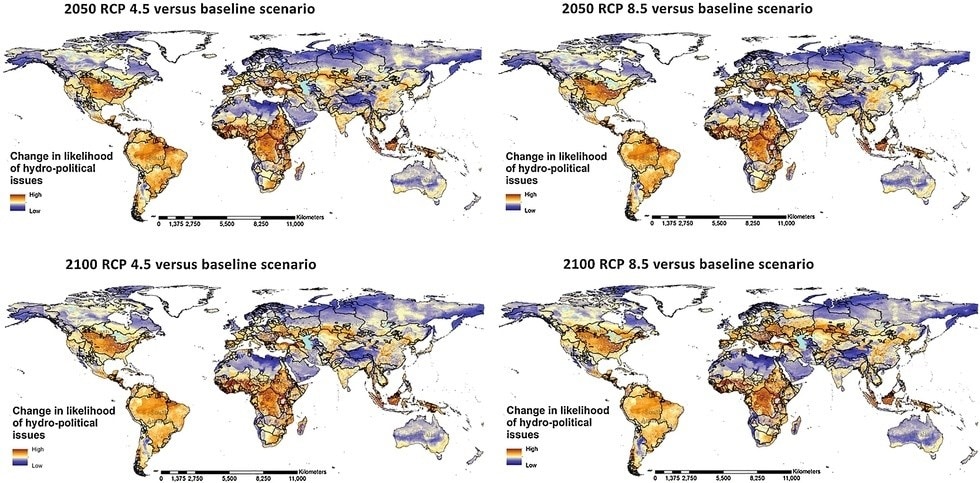Where will the 'water wars' of the future be fought?

'Water wars' could rise as a result of climate change. Image: REUTERS/Heino Kalis

Get involved with our crowdsourced digital platform to deliver impact at scale
Stay up to date:
Fresh Water
A new paper paints a disturbing picture of a nearby future where people are fighting over access to water. These post-apocalyptic-sounding "water wars" could rise as a result of climate change and population growth and could become real soon enough if we don't take steps to prevent them.
The study, which comes from the European Commission's Joint Research Centre (JRC), says that the effects of climate change will be combined with an ever-increasing number of people to trigger intense competition for increasingly scarce resources. This can lead to regional instability and social unrest.
The paper pointed to several hotspots in the world where "hydro-political issues" are more likely to flare up. Not surprisingly, these are areas having problems with accessing fresh water and where a "transboundary" to water exists. That means the people in that area share some body of water, like a lake or a river. So in times of scarcity due to environmental factors and growing population, the water resources become thin and tensions result.
In particular, the five most vulnerable hotspots highlighted by the paper include the Nile, Ganges-Brahmaputra, Indus, Tigris-Euphrates, and Colorado rivers.

The study was led JRC scientist Fabio Farinosi, who used machine learning to model the factors that could cause fights over water. The team's algorithm relied on information about previous occasions of water-linked conflicts.
If you're wondering, water wars are nothing new for humans. As Gizmodo's George Dvorsky reports, this eye-opening water conflict database lists 551 such historical flare-ups.
How likely are the water wars to arise? The researchers put such chances at 75 to 95% in the next 50 to 100 years. How bad they will be, of course, remains to be seen.

Farinosi is hopeful the situation can be improved if we are ready, stating "It depends on how well prepared and equipped the countries are to cooperate."
To help that cooperation, the team developed an index as well as a model for pinpointing the areas most at risk. The group is also putting together an in-depth analysis of the African river basins.
Check out their new paper here, published in Global Environmental Change.
Don't miss any update on this topic
Create a free account and access your personalized content collection with our latest publications and analyses.
License and Republishing
World Economic Forum articles may be republished in accordance with the Creative Commons Attribution-NonCommercial-NoDerivatives 4.0 International Public License, and in accordance with our Terms of Use.
The views expressed in this article are those of the author alone and not the World Economic Forum.
Related topics:
The Agenda Weekly
A weekly update of the most important issues driving the global agenda
You can unsubscribe at any time using the link in our emails. For more details, review our privacy policy.
More on Geo-Economics and PoliticsSee all
Emma Charlton
July 26, 2024
Robin Pomeroy
July 18, 2024
Spencer Feingold and Simon Torkington
July 5, 2024
Pooja Chhabria
June 27, 2024
Spencer Feingold
June 27, 2024
Spencer Feingold
June 26, 2024






